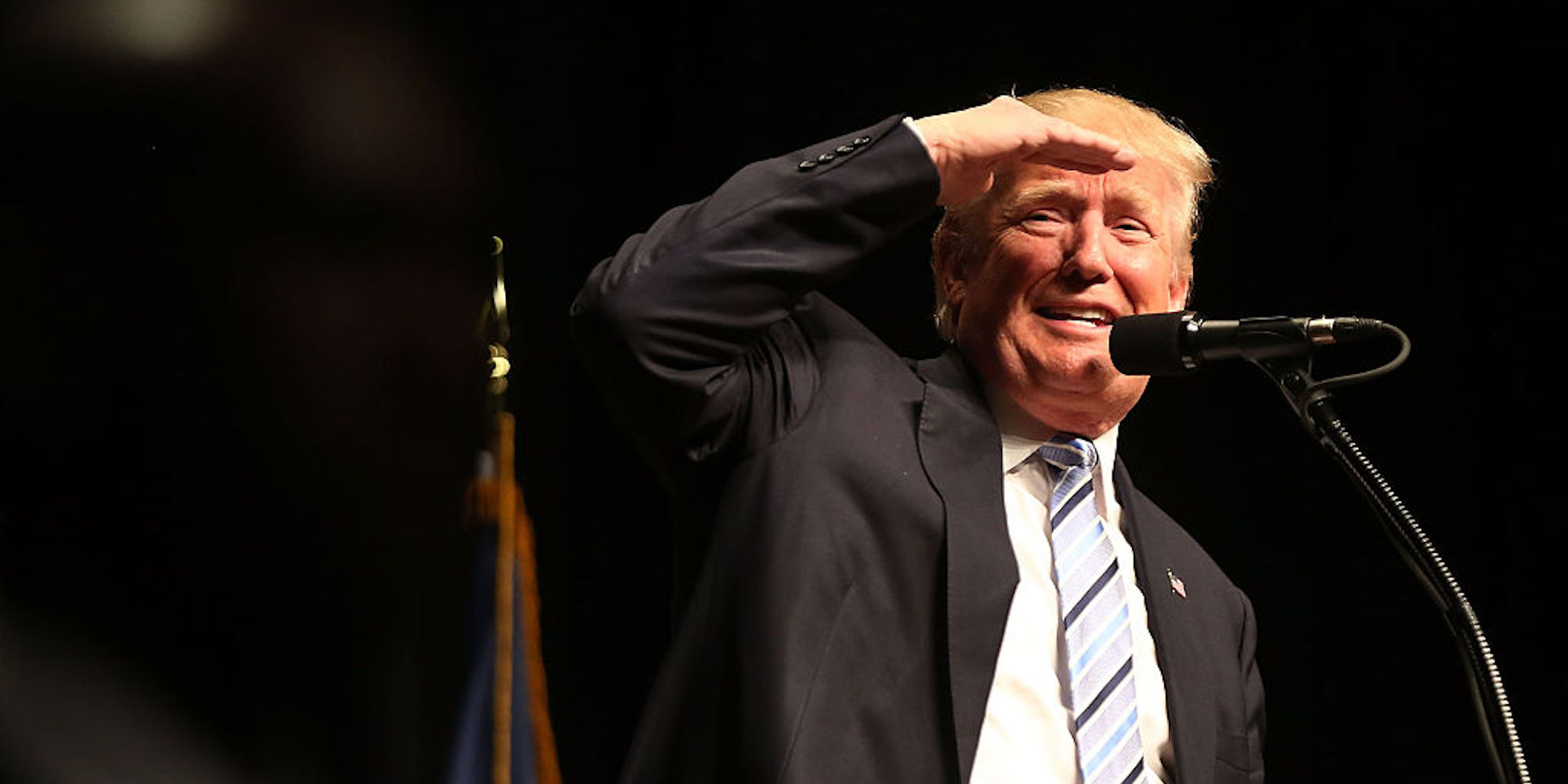- Donald Trump’s 2016 presidential campaign sent a draft speech on energy to be edited by officials in Saudi Arabia and the United Arab Emirates, according to a report released by the House Oversight Committee.
- Their changes were included in the final version, which Trump delivered to petroleum industry delegates in North Dakota in May 2016, according to the report.
- The report says this openness to outside influence carried over into government, and has “virtually obliterated the lines normally separating government policymaking from corporate and foreign interests.”
- The White House has so far not commented on the report.
- Visit Business Insider’s homepage for more stories.
A 2016 Trump campaign aide submitted an energy policy speech to officials from Saudi Arabia and the United Arab Emirates for edits, according to a new report by investigators for the House Oversight Committee.
The report, released Monday, says that former aide Thomas Barrack allowed officials in the Gulf nations to make changes to the speech, which Trump then delivered to attendees at the Williston Basin Petroleum Conference in Bismarck, North Dakota.
Barrack, an investor and longtime Trump associate, in May 2016 sent a draft of the text of Trump’s planned speech to a contact in the UAE, according to the report.
The contact then told Barrack that he had forwarded the planned speech to people in the UAE and Saudi governments.
According to the report, Barrack contacted Paul Manafort, then Trump's campaign chairman, to request that the changes be made. It is not clear what the changes were.
In an emailed response, the report says, Manafort told Barrack that the speech "has the language you want." After Trump's election, Manafort was jailed for financial crimes as part of the Mueller probe.
The New York Times first reported the story late Sunday. It said the episode has come under scrutiny by federal prosecutors investigating foreign influence over Trump's campaign.
Aides to Barrack denied to the Times that he was lobbying on behalf of any foreign official or entity. A spokesman for Barrack noted that prosecutors have no interest in questioning him.
In a statement ot Business Insider, a spokesperson for Barrack said he had been cooperating with the House Oversight Committee investigation, providing documents it requested.
"Mr. Barrack's engagement in investment and business development throughout the Middle East for the purpose of better aligned Middle East and US objectives are well known, as are his more than four decades of respected relationships throughout the region," said the spokesperson. "Mr. Barrack's consistent attempts to bridge the divide of tolerance and understanding between these two great cultures is etched in the annals of time. This is not political it is essential."
"Mr. Barrack has never had a position in the Trump administration."
The White House declined to comment to ABC News, and did not immediately respond to a request for comment from Business Insider.
The House investigators say in the report that none of their research indicated "whether Trump was aware that drafts of his speech were circulated to foreign officials in the Middle East or that feedback had been provided through Mr. Barrack and Mr. Manafort."
When Trump delivered the speech, on May 26 2016, he promised an "America First" energy plan prioritizing US oil production.
And in a nod to the US allies like the UAE and Saudi Arabia, he said: "we will work with our Gulf allies to develop a positive energy relationship as part of our anti-terrorism strategy."
The report was commissioned by Oversight Committee chairman Rep. Elijah Cummings of Maryland, whom in recent days Trump has subjected to a series of attacks on Twitter denounced by critics as racist.

